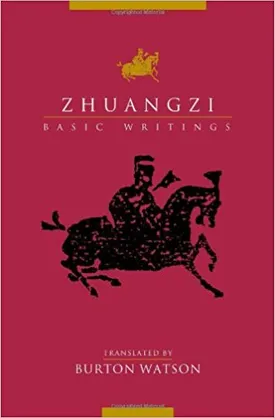Zhuangzi
Zhuangzi is a renowned Chinese philosopher, famous for his influential work, The Zhuangzi. He is one of the earliest scholars and most influential figures of Taoism, the ancient Chinese philosophy which deals with the pursuit of wisdom and a harmonized way of life. Zhuangzi’s works have been highly influential throughout Chinese history, and they remain relevant to many today.
Zhuangzi's life is somewhat mysterious and is mostly based on supposition. What is known is he lived in the 4th century BCE and was born in the State of Chu, then part of the Zhou dynasty. He was an official in the Jin court and had an interest in the art of the yin-yang and the principles of innatism, which would later be the cornerstone of Taoism. He was highly respected by the Chinese literati of his time and is said to have lived "in the company of kings and noblemen".
The Zhuangzi, his eponymous work, is his most famous contribution to Taoist philosophy. It is a collection of stories and philosophical dialogues loosely based on his life. The text is concerned with the pursuit of freedom and understanding, and the importance of individual awareness and self-realization. Zhuangzi's ideas are often seen as part of the larger Taoist movement, as he believes that one should live in harmony with the Tao, or "The Way," which is the natural order of the universe.
Zhuangzi's work has been highly influential in many areas. In politics, it has been used as a source of guidance for those trying to create a society based on balance and harmony. In literature, Zhuangzi's writing style has been praised for its humor, wit, and poetic beauty. In philosophy, his ideas about the importance of individual awareness and self-realization have been crucial for developing a sense of personal autonomy. In terms of religion, Zhuangzi's text has been used to explore the inner practice of Taoism and the relationship between the individual and the Tao.
Overall, Zhuangzi is an influential figure in the history of Chinese philosophy. His works are still relevant today, with many looking to him for advice and inspiration to help them better understand and live in harmony with the Tao. His contributions to literature and philosophy are still admired, and his ideas are still being studied and applied in various areas. He has been praised as an enlightened thinker and his works will continue to be read and appreciated by many.

